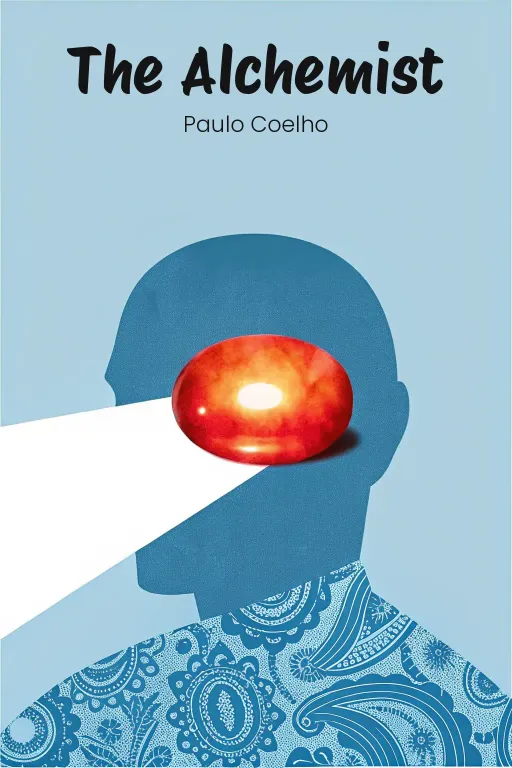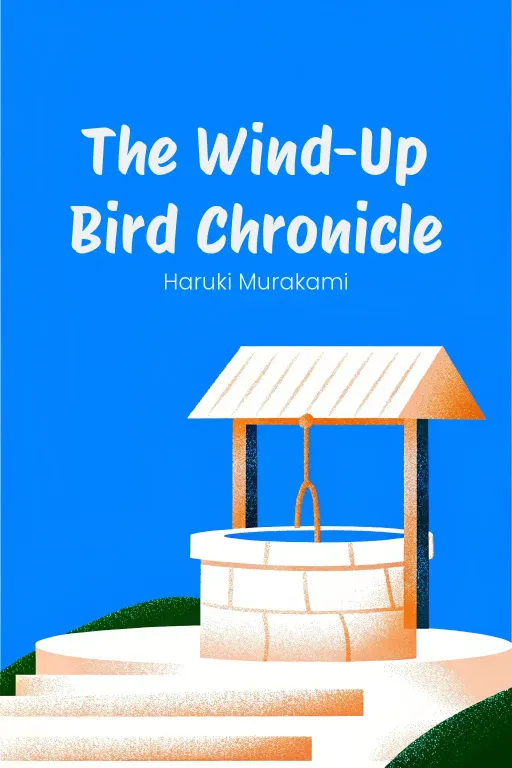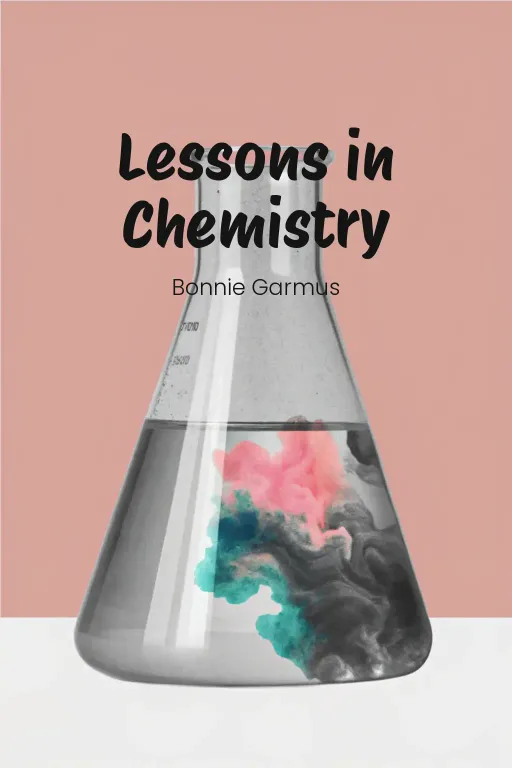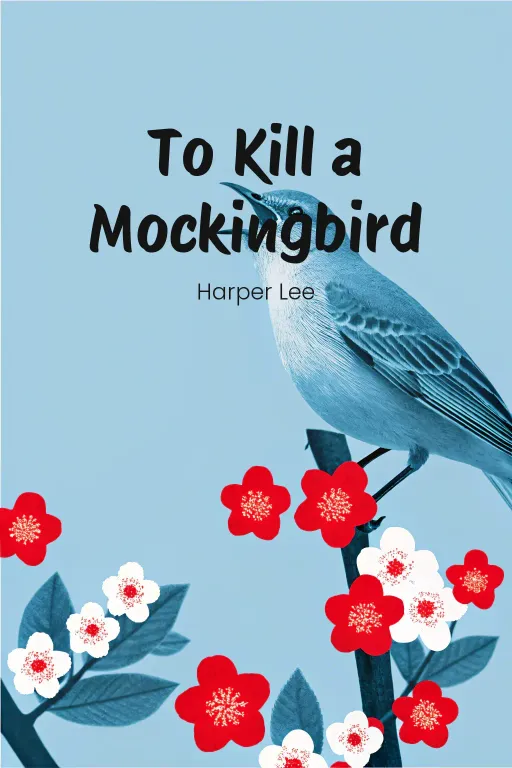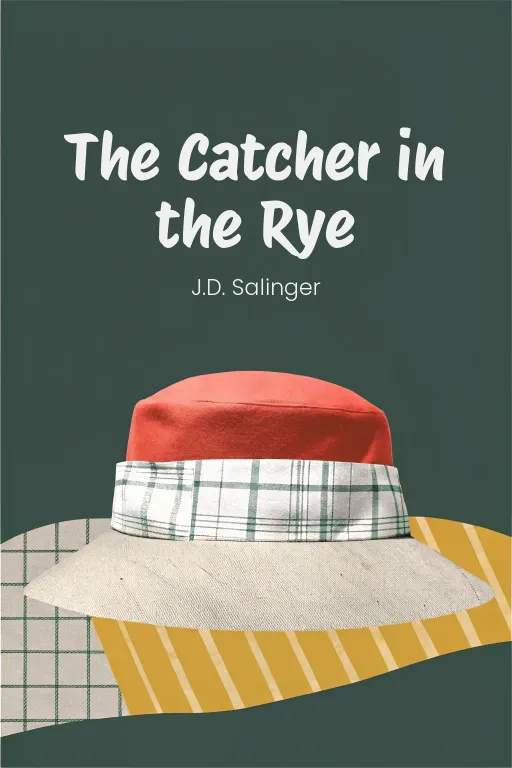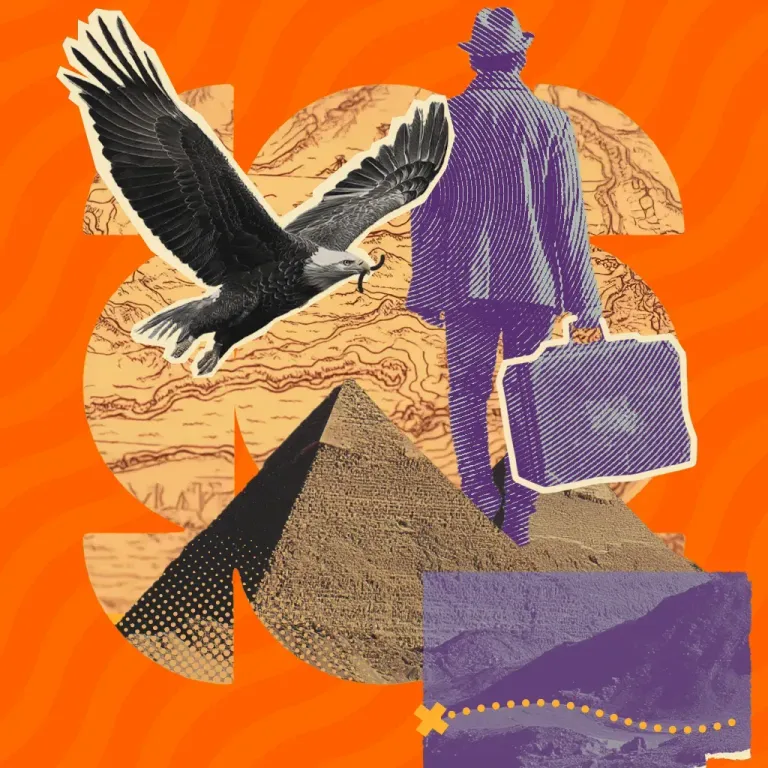
Find Your Treasure: It's Closer Than You Think
Podcast by Beta You with Alex and Michelle
A Magical Fable About Following Your Dreams
Introduction
Part 1
Alex: Hey everyone, and welcome! Today, we’re diving headfirst into a book that's probably launched a million dreams: Paulo Coelho's The Alchemist. Michelle: The Alchemist, huh? So, the core message is if you just believe in omens “really” hard, the universe will basically hand you a winning lottery ticket? I mean, practical advice for the masses, right? Alex: <Laughs> It's deeper than that, Michelle. Think of it as a story about uncovering your Personal Legend—that core purpose that really drives you. Our shepherd boy, Santiago, shows us the importance of tuning into your heart to actually realize your destiny. Michelle: Okay, fair enough. But I still maintain that your 'destiny' seems suspiciously geared towards pyramids, enigmatic alchemists, and perfectly timed life lessons. Let's see if it resonates beyond those very specific circumstances, shall we? Alex: Exactly! I think it will. So, we're going to explore three big themes from Santiago’s adventure. First, the "call to adventure"—that thing that yanks us out of our comfort zone and propels us toward our dreams. Michelle: Right. Every hero needs a good reason to quit their day job, even if that means, you know, selling off the entire flock. Gotta commit! Alex: Then, we'll examine those trials and lessons along the way. Coelho really emphasizes that growth comes from navigating challenges, whether that’s love or betrayal. Michelle: And finally, we get to the grand revelation: that the real treasure isn't the gold or the jewels, but actually the experiences you collect. Don't expect me to start digging random holes in my backyard after this, though. Alex: You never know, Michelle! Anyway, The Alchemist is overflowing with universal truths, and we are so ready to unpack it all with you.
The Pursuit of Personal Legend
Part 2
Alex: Okay, Michelle, since you find omens so “cryptic,” let's dive into the heart of "The Alchemist" – the pursuit of a Personal Legend. This whole journey is driven by this idea of a deep, personal calling, you know? Michelle: Right, the "Personal Legend" thing. I always think of it as, like, the book's way of saying, "Hey, quit your job, ditch stability, and just hope it all works out!" So, Alex, what is a Personal Legend, exactly? Lay it out for us. Alex: Simply put, a Personal Legend, according to Coelho, is your unique purpose in life. It's that persistent feeling that there's something significant you're meant to achieve, something that only you can do, you know? It's different for everyone—like Santiago's dream of finding treasure beneath the pyramids. Michelle: Okay, I get it. So, it's not just a midlife crisis masked as divine inspiration. But here's my thing, Santiago gets this super-clear dream that tells him, "Go to Egypt!" Most of us don't get that kind of memo, do we? Alex: True, but in the book, dreams aren't always literal. They're more like symbolic clues your subconscious is dropping for you. For Santiago, his dream is the catalyst, that initial spark. It's like Melchizedek, the king of Salem, says—that moment you realize what you could be or do if you were brave enough to pursue it. Michelle: Yeah, and right after this realization, he meets someone who hands him metaphysical cheat codes—omens. Melchizedek's whole spiel about "following the omens" is fascinating, but is it maybe a bit much? Alex: Melchizedek introduces Santiago to the idea that the world is constantly communicating with us through these omens, signs, intuitive feelings. He even gives Santiago the Urim and Thummim, those black-and-white stones, to help him make decisions when he's feeling lost. Michelle: So, are you saying these stones are like, a spiritual Magic 8-Ball? You shake 'em, and they tell you what to do next? Alex: Kind of, but it's more about building trust. You're trusting that the universe actually wants you to succeed if you're willing to listen. That’s what Melchizedek says, right? “When you want something, all the universe conspires to help you achieve it.” Michelle: Okay, hold on. That's a nice thought, until you get robbed within hours of setting out, like Santiago in Tangier. That's some conspiracy, Alex. Alex: It's not about avoiding hardships, Michelle. That robbery is part of the journey. That loss forces him to grow. Remember, before Tangier, Santiago was just a naive shepherd boy. He wouldn't have made it through the rest of the journey without learning that resilience. Michelle: Sure, failure as a teacher, I get it. But let's talk about another pivotal choice here—selling all his sheep. I’m sorry, but this guy gambled everything on a vision from a dream interpreter? That’s a pretty big leap, right? Alex: Absolutely and That's the first real test of commitment to a Personal Legend, isn’t it? That willingness to leave comfort behind. Santiago didn’t just sell sheep; he voluntarily left so much behind. Coelho makes it clear that pursuing a Personal Legend means embracing uncertainty, often with sacrifice. Michelle: That bit about Melchizedek demanding one-tenth of Santiago's sheep as a kind of spiritual tax was interesting, though. What was the big lesson there, do you think? Alex: Sacrifice. If you’re not willing to give up something valuable, you’ll never grow. Santiago’s sheep represented security, that predictable pastoral life. To pursue his dream, he had to let go of that stable path for the unknown. Michelle: And that's key, isn't it? Because fear of the unknown stops so many people from even trying. Which brings us to the crystal merchant, a really fascinating character. Alex: Oh, the crystal merchant is such a turning point. He's like a mirror for Santiago—someone with his own Personal Legend but too afraid to chase it. The merchant dreams of going to Mecca but never does. Michelle: And his excuse is, "If I go, what will I have left to dream about?" Classic comfort-zone logic. It’s such a stark contrast. You've got Santiago, rebuilding his life after being robbed, and you've got the merchant, stuck but content in his stagnation. Alex: Exactly. Santiago learns that inaction leads to regret. Seeing the merchant’s wasted potential only strengthens Santiago’s resolve, you know? Plus, he proves to himself he can adapt—turning the crystal shop into a success just by applying what he already knows about reading the environment. Michelle: Right, his shepherding instincts taught him to observe patterns, and he uses that to suggest selling tea in crystal glasses. It’s practical creativity, a real win for Santiago. Alex: And, it proves that the universe actually rewards active participation. Santiago doesn't just sit around waiting for omens. He takes the initiative, trusts his gut, and transforms opportunities as they show up. Michelle: Okay, fair point. But then Coelho throws us another curveball—love. Fatima enters the scene, and we get this whole “love shouldn’t tie you down” philosophy. I have questions. Alex: Fatima’s role is so important. In Al-Fayoum, Santiago finds her and feels this incredible pull to stay, right? But Coelho makes it clear that true love should actually empower you, not hold you back. Staying at the oasis wouldn’t serve either of them, really. Michelle: So, Fatima's perspective is basically, "Go fulfill your destiny or we're done, but I'll wait here in the meantime." That feels kind of… rare, to say the least. Alex: It's not an ultimatum, it's about trust. Fatima loves Santiago enough to step aside and let him become who he’s meant to be. She believes that love and destiny go hand in hand. Michelle: It still sounds awfully convenient for his Personal Legend, doesn't it? But I see your point, Coelho is redefining love as something that strengthens ambition, rather than compromises it. Alex: And Santiago respects her for it. Her faith in him becomes another reason he's determined to succeed. She represents the future that's worth growing into. This dynamic drives home a vital message: love, when it's rooted in real understanding, aligns with purpose, instead of competing against it. Michelle: Okay, so love empowers, growth demands sacrifice, and omens guide the journey. It all leads back to listening to this "Language of the World," right? Alex: Exactly! Coelho’s “Language of the World” connects everything—the dreams, nature, intuition. By reading and trusting these signs, Santiago recognizes that he's part of something bigger. Michelle: I did like how the hawk vision really brought this idea home. He sees these two hawks in the desert sky and just knows a tribal attack is about to happen. He alerts the chieftains, saves the oasis, and they're like, “This guy is clearly connected to something mystical." Alex: That moment solidified his belief in the Language of the World. By interpreting that omen, Santiago proves that connecting to the universe isn’t just philosophical, it’s practical. The chieftains trust him, because they see that understanding in action. Michelle: So, the universe rewards leaps of faith, and the pursuit of a Personal Legend isn't just about the treasure, it's about self-discovery, growth, all that jazz. Alex: Precisely. The treasure is secondary! What really matters is how the journey transforms Santiago. By trusting himself, embracing change, and connecting with the Soul of the World, he becomes infinitely more than just the shepherd he was.
Overcoming Obstacles and Embracing Growth
Part 3
Alex: So, that pursuit of your Personal Legend isn't all sunshine and rainbows, right? Which brings us to our next big topic: Overcoming obstacles and embracing growth. This is where “The Alchemist” really shines, I think. It doesn’t gloss over the difficulties; instead, it shows us how crucial those tough times are for our own transformation. This builds on what we were saying earlier, really exploring how Santiago deals with the challenges of chasing his dream, and how each setback shapes him into a stronger, wiser person. Michelle: Exactly, Alex, this is where we see who's really committed versus who just likes the “idea” of chasing a dream. I mean, everyone loves the concept, but how many people actually keep going after they get knocked down the first time? And Santiago definitely gets knocked down, starting with that robbery in Tangier. Alex: Oh man, that scene is so impactful—it’s his first real test. Santiago arrives in Tangier full of excitement, trusts the wrong person, and loses everything in a split second. One minute he's picturing pyramids, and the next he’s penniless, alone, in a totally foreign place. Michelle: And what I find so interesting is that his first reaction is regret. He questions everything, like why did he leave his safe, predictable life as a shepherd. It’s so… human. Haven’t we all had that moment after a setback where we think, “Why did I even bother trying?” Alex: Totally! That moment of despair is so relatable. But then he consciously pulls himself together and decides to keep going. He remembers the Urim and Thummim – those stones Melchizedek gave him – and decides to trust in omens, even though things seem hopeless. Michelle: Okay, so the lesson here isn’t about avoiding problems, it’s about how you “deal” with them. Instead of giving up, Santiago adapts. But Alex, is Santiago just lucky that he bounces back so quickly? Not everyone handles loss like that. Alex: True, but I think Coelho is showing us what resilience looks like in practice. Santiago doesn’t magically recover; he makes a conscious decision to change his approach. That’s the key, really—he learns from it. And that robbery, as awful as it is, teaches him this lesson: Setbacks are inevitable, but they don’t define you; they refine you. Michelle: Fair enough. But then Santiago ends up at the crystal shop, which I think is a real turning point. Here’s a guy who could’ve given up and gone back to Andalusia. Instead, he starts over, working for the merchant—but he's definitely wrestling with himself, right? Alex: Oh, for sure. Santiago is still tempted to abandon his dream at this point. And the crystal merchant, in a way, serves as a warning. The merchant has a dream of his own—to go on a pilgrimage to Mecca—but he's held back by fear. He chooses safety over the uncertainty of chasing his Personal Legend. Michelle: Yeah, and the mental gymnastics the crystal merchant does are incredible. “If I go to Mecca, what will I have left to dream about?” It’s the ultimate excuse for staying stuck. Coelho is hitting us over the head with it – that guy is Santiago’s potential future if he doesn’t stay committed to his journey. Alex: Exactly! Through the merchant, Santiago sees the consequences of inaction: stagnation and regret. But he also learns the power of innovation. He takes what he learned as a shepherd and applies it in the crystal shop—making improvements like displaying the crystal outside and serving tea in crystal glasses, which is very smart. Michelle: Which is key, because it proves that persistence isn’t just about blindly pushing forward. It’s about adapting, pivoting, finding ways to make progress, even when your dream feels impossible. Santiago leaves the crystal shop not just with more money, but with a renewed sense of purpose. Alex: It’s such a turning point for him. Which leads us to the next big challenge: fear. The deeper he goes into the desert, the more Santiago has to face his own doubts. And nothing tests him more than that vision of the hawks and the risk of warning the tribal leaders at the oasis. Michelle: That scene is so tense. So, Santiago sees an omen – the hawks – and realizes an attack is coming. But then he has to decide: Does he speak up and risk looking foolish, or stay quiet and save face? It’s the classic fear of failure, isn’t it? Alex: Absolutely. Coelho really emphasizes how deceptive fear can be. Santiago is afraid—not just of being disbelieved, but of the potential consequences if he's wrong. But he takes a leap of faith and acts, trusting those signs he's learned to read. Michelle: And it pays off. The tribal chiefs listen, the oasis is saved, and suddenly everyone sees Santiago as more than just some kid wandering around the desert; they see him as someone connected to something greater. Alex: And more than that, it solidifies Santiago’s own belief in himself. He realizes that fear, when you confront it, often shrinks. As the alchemist later tells him, “The fear of suffering is worse than the suffering itself.” Michelle: And you see that theme again when we get to Fatima. Falling in love with her is arguably one of Santiago’s toughest challenges because it makes him want to give up on his journey. Alex: Fatima is such an important character because she embodies unconditional love. She doesn’t ask Santiago to stay; she encourages him to leave. She understands that real love isn’t about possession. By letting him go, she frees him to become his best self. Michelle: That's admirable, but let’s be real, it's not easy. Love complicates things. It adds another layer to your decisions. Santiago’s choice to keep going shows real discipline, but it’s also kind of heartbreaking. Alex: True, but it also suggests that living your truth, your Personal Legend, can coexist with love. Fatima’s faith in Santiago empowers him, and her patience shows her own kind of strength. Michelle: So, what’s the takeaway here? Santiago overcomes betrayal, fear, heartbreak, doubt—and instead of being destroyed by those things, he’s transformed. These obstacles don’t just test him; they shape him into someone capable of achieving his destiny. Alex: Exactly. Coelho’s point is this: the journey is more important than the destination. That’s where the real growth happens. Each obstacle Santiago faces teaches him something valuable about himself and the world. And through it all, he discovers not just his treasure, but his true potential. Michelle: Alright, Alex, you’ve convinced me—maybe there’s more to this shepherd boy than I thought.
The True Treasure: Self-Discovery and Interconnectedness
Part 4
Alex: You know, Michelle, all these lessons in The Alchemist really boil down to a powerful realization about treasure and fulfillment. Santiago's journey isn't just a simple quest for gold; it's about finding those deeper truths within ourselves. I think it’s time we unpack the real treasure in this book: self-discovery and the interconnectedness of everything. Michelle: Ah, so this is the classic "it's about the journey, not the destination" talk, huh? I get that, but—and I might be a little cynical here—Coelho manages to make it feel almost…cosmic. But walk me through it. How does he make finding actual, ancient treasure a believable metaphor? Alex: Well, Coelho's a master at flipping our expectations. At first, Santiago thinks it’s all about the money, right? He's chasing material wealth, believing that his dream points to literal riches. But by the end, he's gained something way more valuable: a connection to his true self and what Coelho calls the "Soul of the World"—that spiritual link that connects us all. The gold he finds at the church is almost secondary to the person he's become. Michelle: Hang on a second. What’s really striking is how perfectly the story comes full circle. He winds up back where he started, finding the treasure was right there all along. That’s a little too convenient, isn’t it? Alex: True, it's a bit on the nose, but that's kind of the point! It's not about where the treasure is; it's about the fact that Santiago earned it through growth. Without those experiences—the alchemist, the resilience he learned, and even finding love—the treasure wouldn't mean nearly as much. The journey shaped him, and that's what allowed him to appreciate the treasure on a deeper level. Michelle: Okay, I'm with you so far. He comes full circle, gets the treasure, but the real win is the personal growth and understanding he gains. Is that why Coelho keeps banging on about the "Soul of the World"? Alex: Exactly! The "Soul of the World" is Coelho's way of explaining how everything's interconnected —it's the force that binds all life together. Santiago learns to tap into it by paying attention to omens, trusting his intuition, and being open to the language of the world around him. Think about the hawks in the desert; he sees their flight and interprets it as a warning. It's like a moment of communion with something bigger. Michelle: And we can't forget the whole “turning into the wind” scene, right? That felt like a pivotal moment, a real turning point for Santiago. He's about to die, then poof, he merges with nature. A bit much, maybe? Alex: It's definitely the most magical part, but also deeply symbolic. By becoming the wind, he shows that everything – humans, nature, even the elements – are all part of this interconnected whole. That's the peak of his spiritual growth. Notice how his fears vanish? He surrenders to the flow of life and unlocks his greatest strength. Michelle: Right, so turning into the wind isn't just about magic; it's about trusting himself and the universe. But here’s a question, Alex: Where does Fatima fit into all of this? Her role still feels a bit… tricky. Alex: Fatima's crucial because she represents how love itself is part of this web. Santiago feels an instant connection with her – Coelho frames it as love at first sight. But instead of holding Santiago back, Fatima empowers him. She encourages him to pursue his quest, trusting that if they're meant to be together, he'll return. She embodies selfless love. Michelle: All fair enough, but we should acknowledge that Fatima doesn’t actually do much. She mostly just waits at the oasis. Is that a fair picture of love, really? Alex: It’s a valid point. But think of it as Fatima representing a patience and faith that mirrors Santiago’s journey. Her role highlights that love doesn't have to be restrictive; it can be inspiring and align with our destinies. She's less of a passive character and more of a symbol of trust in this interconnectedness. As the alchemist says, "Love never keeps a man from pursuing his destiny." Michelle: I see what you mean. Her perspective definitely challenges the usual "drop everything for love" story, which is refreshing. And it does tie back to this bigger idea that we’re all part of something larger – a universal purpose, maybe. Alex: Exactly! Everything points to this truth: we live in a connected world, where everything we face contributes to understanding our lives. Even the people who try to stop Santiago, like the thieves, serve a purpose. Without them, he never learns the treasure's true location, and his journey wouldn't come full circle. Michelle: That part was interesting. The thieves unintentionally give Santiago the final clue he needs. It's like Coelho is saying even adversaries have a role—but isn’t that a bit convenient? Alex: Perhaps, but it’s also a profound idea. The thieves symbolize adversity, which forces Santiago to reflect and grow. Coelho’s message is clear: setbacks have a purpose in the bigger picture. By staying open, we can find meaning even in the tough times. Michelle: So, the universe isn't just trying to make you successful; it's trying to shape you, even if that involves some bumps along the way. Alex: Exactly! That’s why the treasure – both the gold and Santiago’s new self – is so meaningful. It’s not about the chest; it's about the person he had to become to find it. His journey shows that fulfillment comes from how we grow, not just what we gain. Michelle: Got it. The takeaway isn’t "go digging for treasure." It's "chase your dreams, because the journey will bring you closer to who you're supposed to be." Alex: Precisely, Michelle. By following his Personal Legend, Santiago unlocks the beauty of life's interconnectedness. That's a lesson we can all use, whether we're chasing literal goals or not.
Conclusion
Part 5
Alex: So, to sum up, through Santiago's adventure, we've really unpacked the heart of The Alchemist—following your Personal Legend, facing those inevitable hurdles, and finding real satisfaction through understanding yourself and how we're “all” connected. Santiago shows us it takes guts to chase your dreams, setbacks actually help you grow, and the real prize is how you change along the way. Michelle: Right, and let’s be real, the universe might just toss a few unexpected curveballs your way just to keep you on your toes. What really sticks with me, though, is this whole idea of trusting the path – embracing the unknown to evolve into something…more. Alex: Precisely! Coelho really drives home that the journey itself isn't just how you get somewhere; it is the destination. It's about truly embracing both the good and the bad as part of one big, interconnected story. Michelle: So, the million-dollar question: what's your Personal Legend, and what's holding you back from pursuing it? Is it fear, doubt, maybe just the comfort of the everyday? Perhaps, it's time to just take that first step, or even just pick up The Alchemist again for a little nudge from the universe. Alex: Totally! If there's one thing to remember today, it's this: listen to that little voice inside you, trust those gut feelings, and “really” throw yourself into your own adventure. The treasure isn't just waiting at the end; it's dotted all along the way! Michelle: Alright, Alex, you've almost got me convinced – maybe even enough to stop side-eyeing those "signs" all the time. But, uh, don't expect me to quit my day job and wander off into the desert anytime soon. Alex: Hey, baby steps, Michelle. Start with a dream. Michelle: Fair enough. Until next time, everyone – dream big, grow even bigger, and keep chasing those pyramids! Alex: See you next time!
